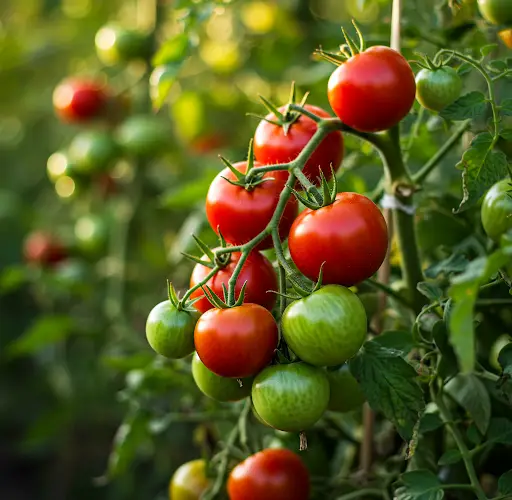Boost Your Vegetable Yields Naturally with This Simple Kefir-Based Fertilizer
Growing healthy, high-yielding vegetables doesn’t always require expensive fertilizers or synthetic products. Sometimes, the best solutions come straight from nature—and even from your own kitchen. One such solution is an organic plant supplement made from kefir, a fermented dairy product rich in beneficial microorganisms and nutrients that can do wonders for your garden.
This natural recipe is especially effective for popular garden vegetables such as tomatoes, cucumbers, peppers, zucchini, green beans, and many others. Not only does it nourish the plants with essential nutrients, but it also helps protect them from common diseases and promotes healthier soil, leading to stronger roots and increased productivity throughout the growing season.
Why Kefir Works So Well for Plants
Kefir is known for its probiotic content and nutritional richness. While it’s widely appreciated for its health benefits in human nutrition, kefir also plays an important role in plant care. It introduces beneficial microorganisms into the soil, which support plant root health and improve nutrient absorption. When used as a natural fertilizer, kefir provides a wide spectrum of essential nutrients:
-
Nitrogen – supports leafy growth and overall vigor
-
Phosphorus – aids in root development and flower/fruit production
-
Potassium – helps regulate water uptake and strengthens plant tissues
-
Calcium and Magnesium – contribute to strong cell walls and resistance to disease
-
Iron – is essential for photosynthesis and chlorophyll production
Moreover, the fermented nature of kefir improves soil structure, especially in nutrient-poor or compacted soils. It encourages microbial activity, which in turn helps break down organic matter and makes nutrients more accessible to plants.
How to Prepare the Fertilizer
Making this organic fertilizer at home is easy and requires only two ingredients:
-
1 liter of kefir (plain, unsweetened)
-
10 liters of warm water
Start by pouring 1 liter of kefir into a large container filled with 10 liters of warm (not hot) water. Mix thoroughly and let the solution sit for about an hour. This resting period allows the kefir cultures to acclimate and activate before being applied to your plants.
Application Method
Before applying the solution, make sure the soil around your plants is already moist. This helps the plant absorb the nutrients more effectively and prevents root burn. Once the soil is damp, pour the kefir solution at the base of each plant, targeting the root zone.
You can apply this feeding solution once every 15 days during the growing season. Regular use promotes stronger, greener plants, and you’ll likely see an improvement in flowering, fruit formation, and overall vitality.
Foliar Spray Benefits
This kefir-based mixture can also be used as a foliar spray. Spraying it directly onto the leaves provides an extra layer of protection against diseases such as galls and leaf spots. The lactic acid and beneficial bacteria in kefir form a protective film on the leaf surface, helping deter pathogens and pests.
To use as a foliar spray:
-
Pour the mixture into a clean spray bottle.
-
Apply in the early morning or late afternoon to avoid sunburn.
-
Lightly mist the leaves, covering both the top and underside.
This dual method—root watering and foliar spraying—ensures your plants benefit from both internal and external nourishment and protection.
Alternative Option: Using Milk Instead of Kefir
If kefir isn’t available, plain milk is an excellent substitute. Like kefir, milk contains calcium, proteins, and lactic acid, all of which are beneficial for plant health. The lactic acid in milk helps form a thin film on plant leaves, deterring common pathogens and promoting healthy foliage.
To substitute:
-
Mix 1 liter of milk with 10 liters of water.
-
Apply using the same method described above.
While milk lacks the full probiotic profile of kefir, it still offers effective disease prevention and nutrient support.
Final Thoughts
Using kefir as a natural fertilizer is a simple, low-cost way to increase yields, improve soil health, and protect vegetables from disease. Whether you’re cultivating a small backyard garden or tending a larger vegetable patch, this organic solution can make a significant difference in the health and productivity of your plants.
By integrating kefir-based feeding into your regular gardening routine, you support the environment and your crops—all without relying on synthetic fertilizers or chemical sprays. With just two ingredients and a little time, you can create a nourishing elixir that brings out the best in your garden.



